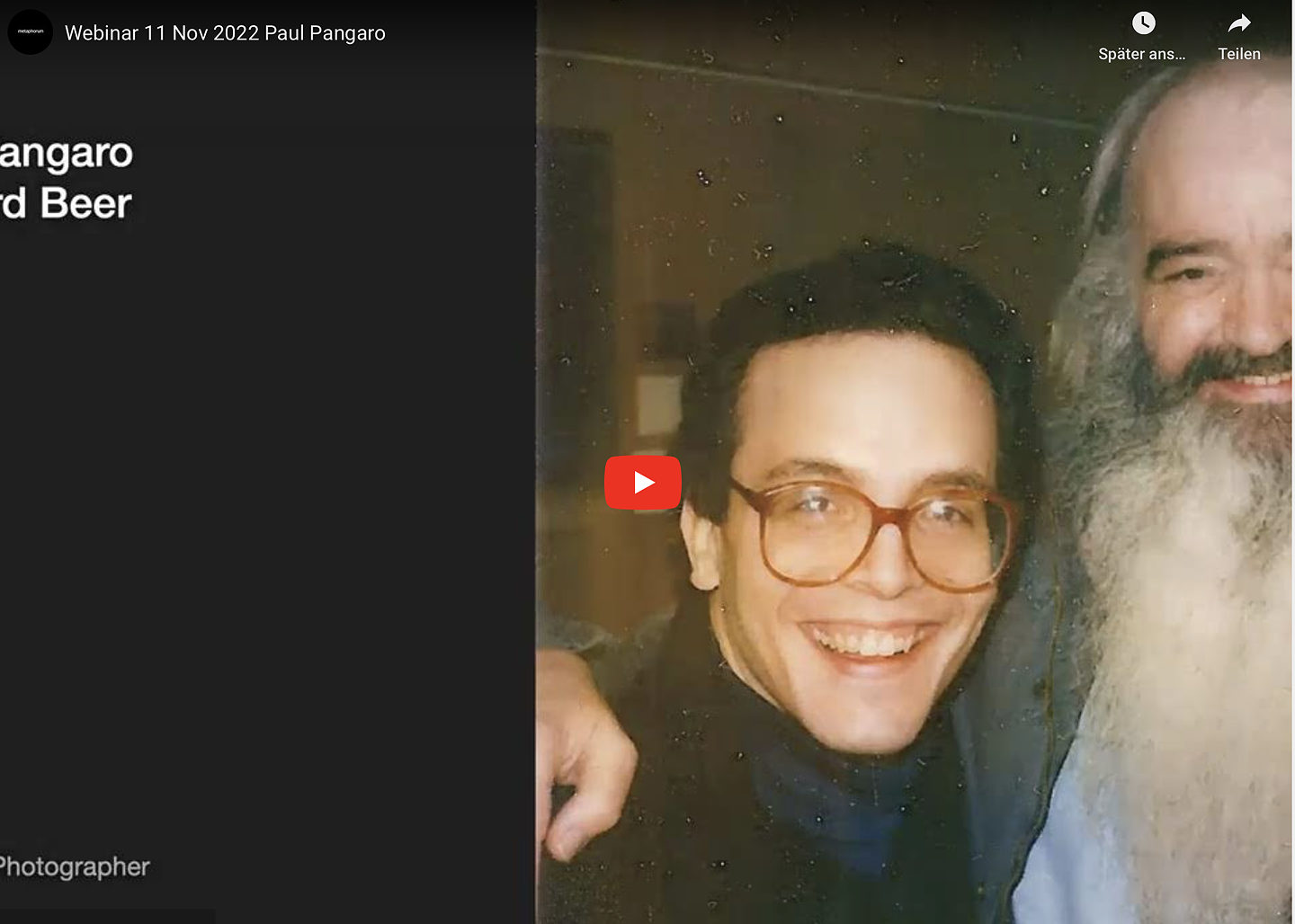
There are countless challenges to managing complex organizations, including the need to design its processes with variety explicitly in mind. Of course, one approach is the VSM.
In this session a complementary approach is proposed, and critique invited. This approach distinguishes the classes of conversation that must reach agreement to coordinate the action of an organization. Of course, these conversations must pay attention to variety.
Pangaro will present this model of “designing conversations for variety” and propose how it maps to the VSM, where it may offer additional resilience. The goal of the presentation is to engage the participation of the attendees and to draw connections between the VSM and this conversation model, in hopes of illuminating both.
Speaker Bio
Paul Pangaro is president of the American Society for Cybernetics. His career spans research, consulting, startups, and education. Before his current role as Visiting Scholar in the School of Architecture and the School of Design at Carnegie Mellon University, he was Professor of the Practice in the Human-Computer Interaction Institute on the same campus. He has worked with and within startups in New York and Silicon Valley, in product and technology roles.
His past consulting clients include Du Pont, Nokia, Samsung, Instituto Itaú Cultural (São Paulo), Ogilvy & Mather, and PoetryFoundation.org. His writing explicates “designing for conversation” from his research and implementations of software and organizational processes. His B.S. in Humanities/Computer Science is from MIT and his Ph.D. in Cybernetics with Gordon Pask is from Brunel University. His work can be found at http://pangaro.com/.
